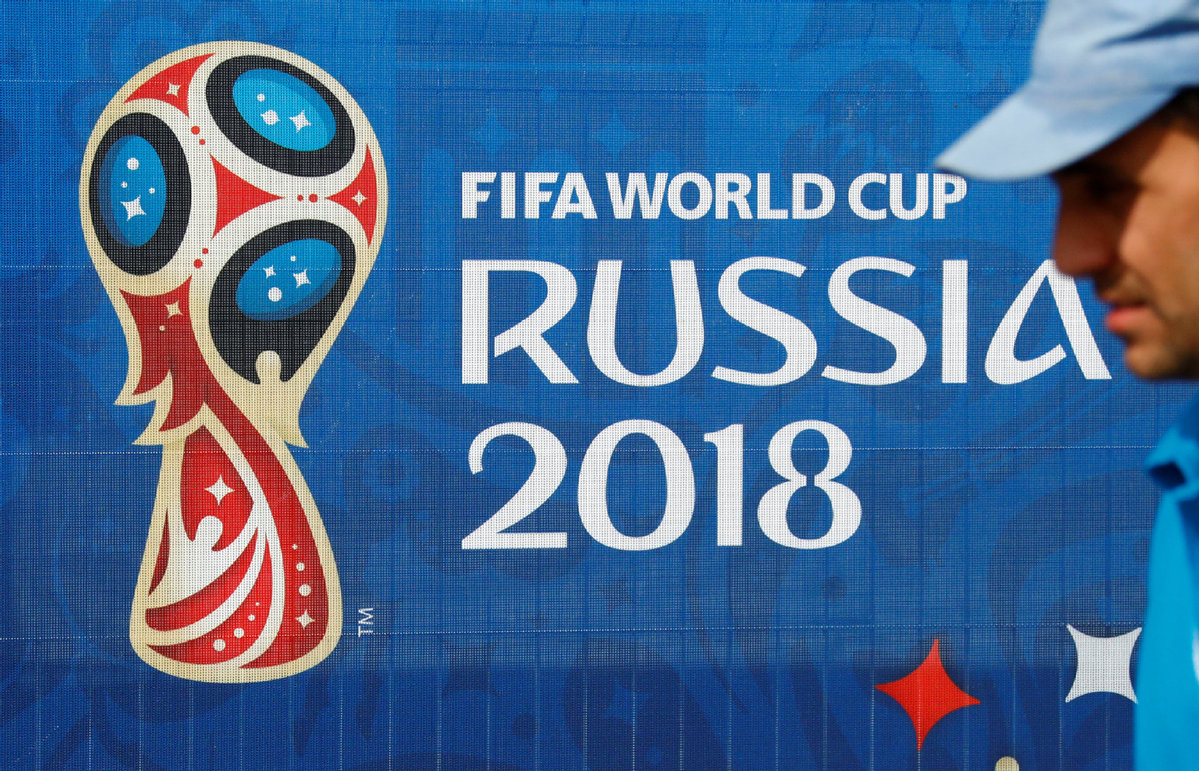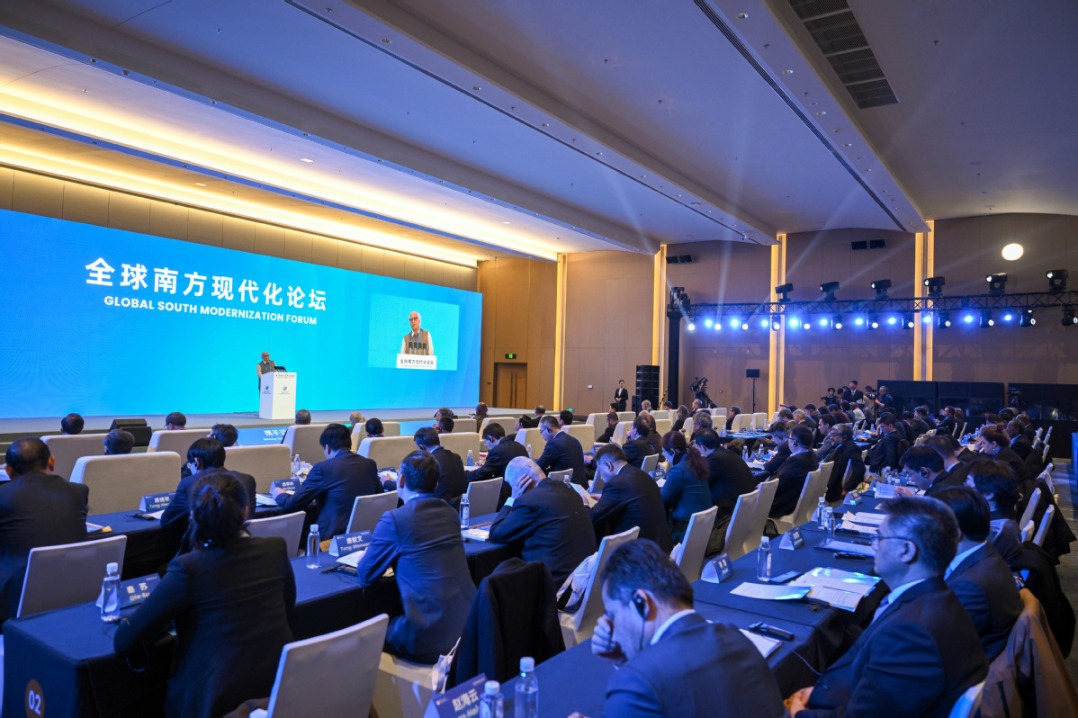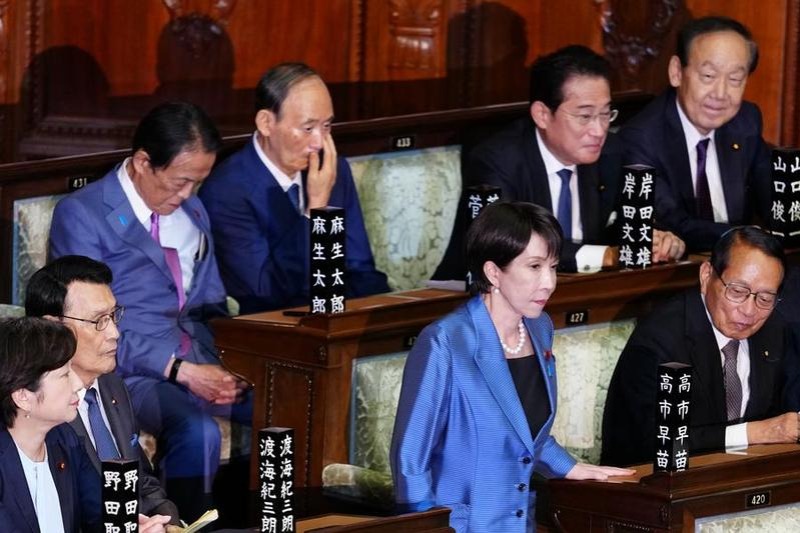World Cup gives China a golden opportunity to develop soccer


A photograph showing a Beijing-Moscow train carrying a banner on its engine that reads "China's crayfish cheer for the 2018 World Cup in Russia" has gone viral on social media. The train is reported to be carrying a huge amount of frozen crayfish from Jinzhou, Central China's Hubei province, to cater to the Chinese soccer fans' taste in Russia.
That China will not play in the Football World Cup has not prevented Chinese soccer fans from partaking in the thrills of the sports gala in Russia. Reports say Chinese fans have bought over 40,000 tickets, more than Spanish and English fans. They have also booked 16 percent of the hotel rooms in the host cities in Russia.
Except for actually playing, China will take part in almost every other aspect of the World Cup. Chinese children have been invited to take part in the opening ceremony. Chinese companies have made the balls to be used in the World Cup, the official mascot Zabivaka, as well as the replicas of the FIFA World Cup trophy. And the air-conditioning system in the newly built Mordovia stadium in Saransk has been provided by Chinese enterprises as well.
Besides, Chinese sponsors' advertisements during the World Cup will help publicize Chinese brands across the world. And China's real estate developer Wanda, household appliance manufacturer Hisense, smartphone maker Vivo, dairy company Mengniu Dairy, electric bicycle maker Yadea and virtual reality entertainment and clothing enterprises are among the top sponsors of the tournament.
In fact, Chinese enterprises will account for $835 million of the $2.4 billion advertising revenue for the World Cup.
The Chinese enterprises' billboards in the stadiums and their logos on the jerseys of the players will give a tremendous boost to Chinese brands across the world, and help promote their tailor-made products and services. These enterprises have also helped spread the love for soccer in China.
"It's no secret that China has a key role in our strategy to develop football around the globe. It must play," said FIFA Secretary-General Fatma Samoura during her visit to Beijing last year.
In its "FIFA 2.0: The Vision for the Future", the International Federation of Association Football has set a target of involving 60 percent of the world's population in soccer by 2026. And China, thanks to its huge population, will play an indispensable role in realizing that goal.
Although China is ranked between 80 and 90 in the world soccer standing, it has more than 200 million soccer fans. But the number of registered soccer players in China is even less than that in Vietnam, which ironically shows the great potential to develop the sport in the country.
The Chinese enterprises' presence in the World Cup reflects not only their global ambitions but also the existence of a large number of soccer fans among their consumers at home. China has all the conditions needed to develop soccer at the grassroots and fit into the FIFA 2.02 plan.
Moreover, ten players from the clubs in China's Super League, including Argentina's Javier Mascherano, Brazil's Renato Augusto, Belgium's Axel Witsel and Portugal's José Fonte, will represent their respective national teams in the World Cup. Which speaks volumes of the financial power of the Chinese clubs.
China has almost all the conditions needed for the healthy development of soccer. Hopefully, the World Cup will prompt the decision-makers to focus on the grassroots to develop the sport.
In the 1950s, the governments at various levels built a large number of sturdy concrete ping-pong tables in urban residential communities, which attracted a large number of people to play ping-pong. The result: China remains the dominant world power in the sport.
But even in Beijing, where public sports facilities are the most developed in the country, children struggle to get a chance to play in the limited number of soccer fields. If the authorities want to raise the level of soccer in China, they should first improve the soccer facilities in the country.
The author is a writer with China Daily. liyang@chinadaily.com.cn



































